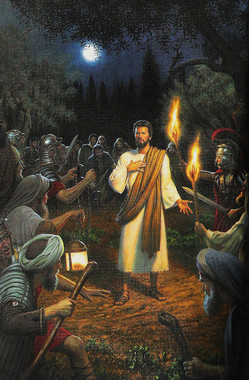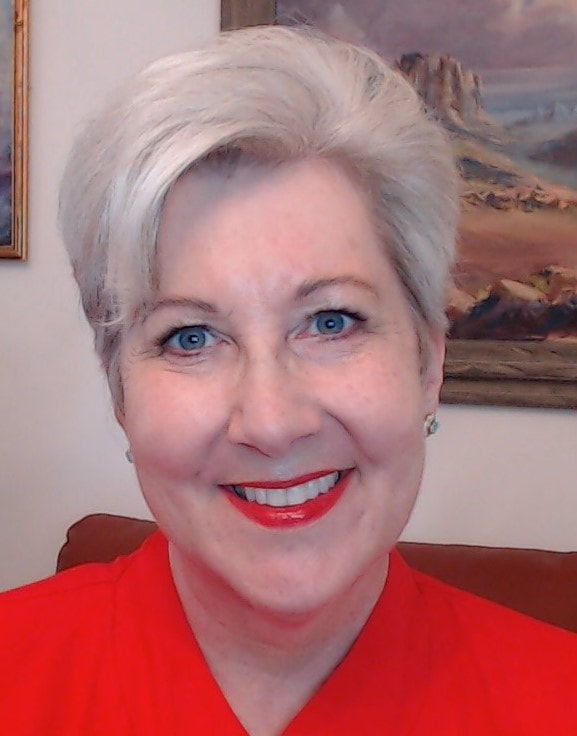|
4/10/2012 Resurrecting the heart after a betrayal Nothing touches my heart in the Easter story like the disappointment and betrayal of Jesus by his closest friends. First, the disciples slept through their prayer watch in the garden of Gethsemane. Then Judas, whom Jesus loved, betrayed him to the Roman soldiers. And finally Peter and others abandoned him to spend those lonely, difficult hours on the cross without their support. I have found that, of the range of human difficulties, acts of betrayal can be particularly challenging to move beyond. Although insignificant in light of what Jesus suffered, many years passed before I stopped sucking in the halting breath of a sucker punch and stopped feeling an aching tightness mid-chest when I thought of a high school sweetheart whom I had discovered to be cheating on me with one of my best friends. Finding a way past the pain of betrayal often involves forgiveness. And forgiveness sometimes requires stepping out of well-worn thought paths and choosing to see others in a better light. That was certainly the case for me. In fact, it was Jesus' story that some years later helped me resurrect my heart from the dark, dank tomb of betrayal. The Bible Lesson I studied the week before Easter one year focused heavily on Judas' betrayal and Jesus' turning to God to forgive. "Father, forgive them, for they know not what they do," were the healing words Jesus spoke from the cross on behalf of all his persecutors. It seemed so natural for such a Godlike man to make God's forgiveness of others his first line of attack in combating sin and pain. Forgiveness was a part of his makeup, a holy expression of the Christ. For him, it was the most natural thing.  But as I read the story, I felt overwhelmed, sunk under anger for what Judas had done. How could he so abuse Jesus' love? How could I ever forgive Judas? Anger stirred up all kinds of ugly feelings of the betrayal of trust, innocence and love. During that week before Easter, my thoughts became darker and darker with unhealed anger. I understood that the real message of Easter is not to be confined to the suffering of crucifixion, but it involves the resurrection to a renewed life and the ascension above the effects of sin, sorrow, pain and death. I longed to honor Jesus by my own resurrection from anger to forgiveness. So I prayed for a change of heart. I prayed to know how to love Judas and to forgive him. My prayers took me back to the Bible. The book of Lamentations covers the period of sharp, intense pain, anger and sadness immediately after the fall of Jerusalem. The shock over the event gradually fades into the chronic ache of captivity. I think the Jewish people's reaction to their world being turned upside-down are the same emotions that follow a betrayal. Jeremiah wrote,"My strength and my hope is perished from the Lord. Remembering mine affliction and my misery, the wormwood and the gall. My soul hath them still in remembrance, and is humbled in me." (Lamentations 3:18-20) Yet even while laying bare this raw and anguished mental state, the prophet also offers a ray of hope. He lights a way out of perpetual suffering when he continues, "This I recall to my mind, therefore have I hope. It is of the Lord's mercies that we are not consumed, because his compassions fail not. They are new every morning: great is thy faithfulness... Let us lift up our heart with our hands unto God in the heavens." (ibid. 3:21-13,41)  "It is of the Lord's mercies that we are not consumed." I realized that I didn't have to love Judas the betrayer. That is, I didn't have to stay within the frame of reference of Judas as a betrayer. But I could love the Judas that was not consumed by betrayal and hate - the Judas that God's mercies knew and loved and renewed every morning. I could exchange my sense of Judas the betrayer for the Judas that was resurrected from envy, hate, greed, remorse, guilt, and self-destruction, to repentance and progress, through the forgiveness, grace and ever-renewing mercies of the Christ, Truth. I could love the Judas who had progressed on under the renewable mercies of divine Love, which morning after morning pours forgiveness and love on His children. I thought, "Why, the real Judas has probably ascended by now under the influence and healing power of all that compassion and mercy and love. He would no longer identify himself with the evil that claimed to possess him. Am I going to still hold him, centuries later, to his worst behavior on his most deluded day?" Jesus didn't. "Father, forgive them," included Judas, too. It seems to me that Jesus' method of forgiveness, being counter-intuitive to the human mortal response to betrayal, acted like ammonia mixed with chlorine in a closed room. It deprived evil of all air, literally snuffing it out. I felt a cool, spiritual breeze blow through my thoughts, cleaning out old memories that had clung to me like dried, dead leaves hang on a tree until the March winds shake them off.  I thought of my friends. It occurred to me that that had my boyfriend known who he was as God's good child - how good I knew him to be; had my girlfriend understood how I loved her - how much I valued our friendship; they both would have, at the very least, dealt with me directly first, before proceeding with their relationship. I felt compassion for them. They hadn't known who they were. They didn't know what they did. That was all that I needed to forgive the worst and let go of the pain of the betrayal. I don't claim to begin to the fathom the depth of the betrayal, and the great heights of the divine Love, that Jesus experienced. But I do know that every part of his story teaches us something essential about the marvelous capacity and resilience we have, as God's children, to forgive and to grow in love. Mary Baker Eddy wrote, "Christianity is not superfluous. Its redemptive power is seen in sore trials, self-denials, and crucifixions of the flesh. But these come to the rescue of mortals, to admonish them, and plant the feet steadfastly in Christ. As we rise above the seeming mists of sense, we behold more clearly that all the heart's homage belongs to God. More love is the great need of mankind. A pure affection, concentric, forgetting self, forgiving wrongs and forestalling them, should swell the lyre of human love." Miscellaneous Writings, 106 Conversation and comments are encouraged. Please jump in!
If you like what you see, share the link with your friends, fans and followers! A full-text version of this blog can be delivered to your email inbox. Please subscribe in the sidebar. You may also wish to: VISIT MY WEBSITE HOME PAGE READ MORE BLOG POSTINGS FIND A LIST OF MY OTHER PUBLISHED CONTENT
Cynthia
4/10/2012 09:40:14 am
thanks so much Michelle - so so helpful... Jesus's supreme example brings anything unGodlike in our thought to the surface to be addressed and washed away...hard sometimes but so free-ing! I had my own experience the week before Easter with this kind of challenge and an so grateful for what Jesus taught us by example.
Tawny
4/10/2012 12:35:31 pm
Thank you Michelle! I love the journey you shared to forgiveness. We were wrestling with the part Judas played in Jesus' journey to resurrection and hope for us all in our Sunday School class on Easter. I have the privelege of sharing that precious hour with our high schoolers and am eager to share this article with them next Sunday. They are such a ray of light to their friends and peers at school. Thank you for sharing! 4/10/2012 01:11:52 pm
Sunday School teaching is such an important activity. I understand the struggle with Judas. Betrayal in any form is a tough thing to get one's head around. I hope you will take a peek at some of the links to CSMonitor articles and daily lifts that have some bite-sized insights into dealing with betrayal and honing our forgiving skills. And I just LOVE that last quote from Miscellaneous Writings. You are so good to write in, Tawny!
Betsy
4/10/2012 03:12:59 pm
Michelle, 4/11/2012 12:46:35 am
Wow, Betsy. I am grateful to think this post is supporting your prayers at such a critical time. This subject seems to be striking a chord all around. I say to all those in a similar place, Let the betrayal and grief, and the sin that caused it, be healed!
Kim
4/11/2012 06:48:20 am
I find that forgiving myself is much harder than forgiving others. Once I have been able to admit and repent of my past transgressions it is much easier to forgive others of theirs. "Forgive us our debts, as we forgive our debtors." Very thought provoking post!
Michelle Nanouche
6/26/2012 06:16:22 am
Harder, yes. But no less essential to progress. Thanks, Kim. 6/26/2012 06:01:56 am
My buddy and I had been just discussing this particular topic, This is always attempting to prove me incorrect! I am going to present her this particular blog post and rub it in a little!
Michelle Nanouche
6/26/2012 06:10:05 am
I hope this is a good thing! :) Comments are closed.
|

Find me on YouTube
I have practiced Christian Science professionally in some form since 1979. But my journey with Christian Science started in a Sunday school where as a young child I was taught the Scriptures and some simple basics of Jesus' method of scientific Christian healing. A significant experience at the age of twelve opened my eyes to the great potential of this practice. After impaling my foot on a nail, I prayed the way I had learned in Sunday school. Within moments the pain stopped and healing began. By the next morning the wound had disappeared completely. Having experienced the great potential of Christian Science, there would be no turning back. |
INFORMATION |
SERVICES |
HELP |
© 2011-2024 Michelle Boccanfuso Nanouche, CSB. All rights reserved. Pages updated July 1, 2024.

 RSS Feed
RSS Feed
